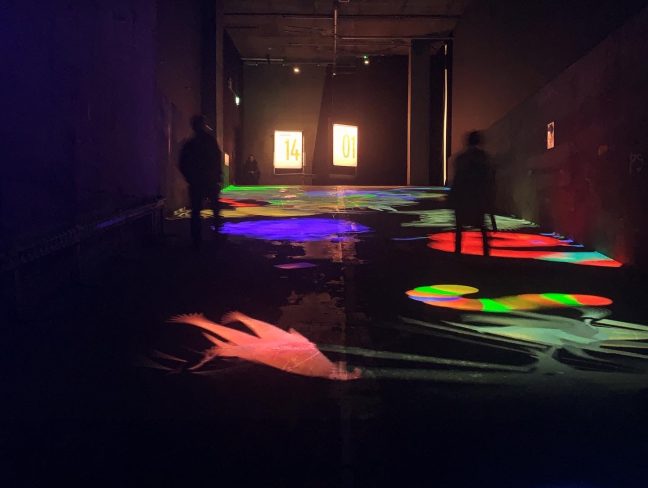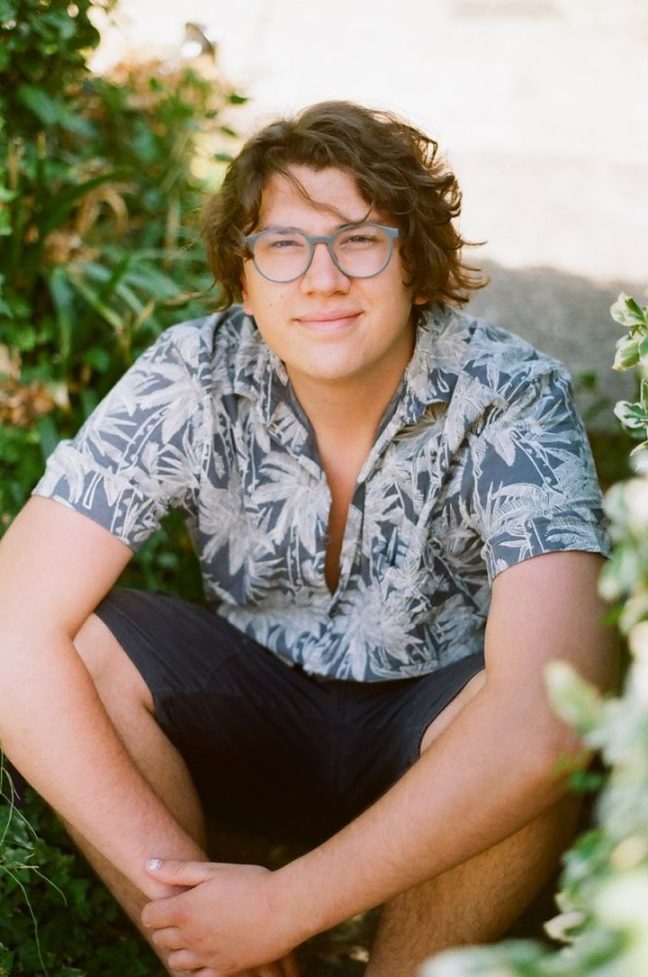We catch up this month with VASCHA who is in the 3rd year of the DMSA programme to discuss with their work, influences and process.
Three words that describe you as a creative person?
AL: Resourceful, impulsive, perfectionistic
When did you start working with sound and music?
AL: In 2012 I got this Yamaha keyboard and by using the 3-track ‘record’ setting, I would recreate entire EDM tracks (drum kit, bassline, synth) by artists ranging from Swedish House Mafia to Lady Gaga. It wasn’t until 2015 when I found myself in the vortex of the micro-genre and internet movement ‘witch house’, when I released an original song on Soundcloud for the first time. This genre was based around occult imagery, wobbly bass, trap beats, sawtooth synths and seering, delayed vocals with unintelligible lyrics. Producers like S4LEM and Ritualz blew my entire perspective of music out of the window because so much emphasis was put on texture and atmosphere. I had no technical or academic knowledge about music production, which meant slowly teaching myself as I went along, dealing with musical ideas that were way too ambitious for my mixing and mastering skills. During this time, Soundcloud offered a more communal and democratic platform that allowed musicians to find and connect with each other through ‘groups’. Living in a lonely village outside of Colchester, various spaces like this on the internet became a safe space to kind of express my ideas and make connections with like-minded people. When I moved to Brighton 2 years later, I took a course in art foundation which is where I made my short film ‘Dead as Night’, whilst simultaneously creating the soundtrack which became my first EP. This was an exciting moment where my confidence in my craft was validated and solidified. However, my technical skills I mentioned before were still underdeveloped, leading to some messy first live shows. Learning some of these skills during the Sound Art course has been a joyous experience. Since then I have worked with some some of my favourite local and international artists such as Satvrnxx, Diana Starshine, Oscar Cheung, An Nguyen and Charlie + Jenny from ZLUTZ.
In what ways has the DMSA course supported or helped you to develop into who you are today creatively and professionally?
AL: The DMSA course has enriched my senses in the very fabric of electronic sound. This new perspective has given me a voice and a freedom to expand my artistic boundaries. It has introduced me to such an eclectic mix of artists and tutors. The facilities have allowed me to learn new skills (shoutout to Bob and Paul) and has opened my eyes to the ways in which this passion is of use to the world around me. Becoming friends with fellow course mates and performers (such as IAMFYA and CURRENTMOODGIRL) has been a wonderful experience. It shows me that although Brighton’s electronic scene often lacks space for queer live performance, something super special is happening in DMSA and change is upon us. This is so much more than just a music course.
Can you tell us a few words about VASCHA?
AL: VASCHA is an alias that landed with my the aforementioned EP ‘Dead as Night’. It is a an unintentional outlet to express my anger, pride and grief in which I have not found anywhere else in life. Some people claim to see her as a character, a mysterious pop star with an imprinted sonic identity. This identity is inspired by things like David Lynch films, euro-dance, outer space and the sounds of London Underground trains.
What are your plans for the near future?
AL: I’m currently expanding my sense of performance, and incorporating a more physical, live element into my work ready for my final DMSA project here in Brighton. I aim to learn fearlessly by embracing everything I still do not know yet as a challenge. My goal is to branch out to audiences in places like London and Bristol and to release my next musical project which embraces a much more personal presence than my previous music, with each track based on a different Hieronymus Bosch painting.
















